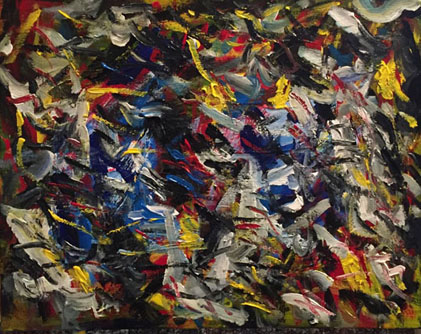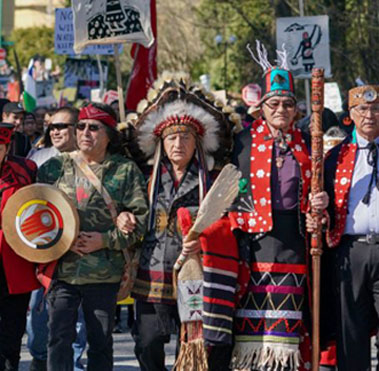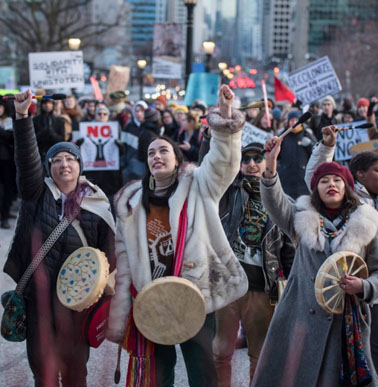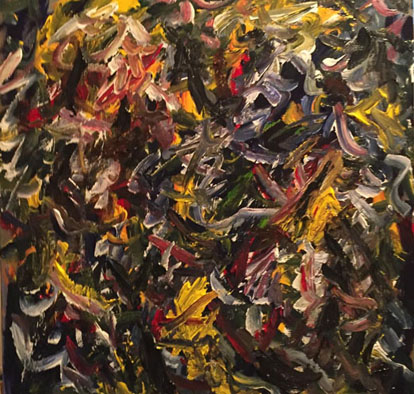First National Day for Truth and Reconciliation a time for Commemoration not Celebration … but eventually
Sep 30th, 2021 | By Citizen X | Category: In Brief
SPECIAL FROM THE DEMOCRATIC DESKTOP OF CITIZEN X, BUCKHORN, ON. K0L 0C1. 30 SEP 21, 2021. I quote from a Government of Canada, Canadian Heritage web page : “September 30, 2021 marks the first National Day for Truth and Reconciliation … The day honours the lost children and Survivors of residential schools, their families and communities.”
The Heritage page goes on : “Public commemoration of the tragic and painful history and ongoing impacts of residential schools is a vital component of the reconciliation process … The creation of this federal statutory holiday was … made by Parliament.”
The page also notes that “Both the National Day for Truth and Reconciliation and Orange Shirt Day take place on September 30 … Orange Shirt Day is an Indigenous-led grassroots commemorative day that honours the children who survived residential schools and remembers those who did not … On September 30, we encourage all Canadians to wear orange to raise awareness of the very tragic legacy of residential schools.”
Like many other Non-Indigenous Canadians I want to be supportive of the first National Day for Truth and Reconciliation. There is no doubt in my mind that First Nations or more generally Indigenous peoples were treated contemptibly and appallingly during the first century of the Canadian confederation of 1867. And the practice of separating Indigenous children from their families, and sending them to residential schools run largely by church organizations, has come to symbolize the worst of this profoundly misguided early Canadian government policy

According to the online Canadian Encyclopedia “the term” residential schools in Canada today “refers to schools established after 1880 ….by Christian churches and the Canadian government … to both educate and convert Indigenous youth and to assimilate them into Canadian society.” But “the schools disrupted lives and communities, causing long-term problems among Indigenous peoples … At its height around 1930, the residential school system totalled 80 institutions … The last residential school closed in 1996 … Since then, former students have demanded recognition and restitution, resulting in the Indian Residential Schools Settlement Agreement in 2007 and a formal public apology by Prime Minister Stephen Harper in 2008. In total, an estimated 150,000 First Nation, Inuit, and Métis children attended residential schools.”
Earlier this year we also had several media reports about evidence of mass graves of Indigenous children who died at residential schools. And this has no doubt shaped and sharpened the first National Day for Truth and Reconciliation today, on September 30, 2021.

Like many other Non-Indigenous Canadians as well, no doubt, I also have questions about the “Truth” part of Truth and Reconciliation. Maybe it is just my advanced age showing too clearly. But to me the profoundly misguided early Canadian government policy also had growing moments of enlightenment in the 20th century.
In the very deep background, at the same time as the residential school system was reaching its height around 1930, the university professor Harold Innis was concluding his now classic economic history of The Fur Trade in Canada with : “We have not yet realized that the Indian and his culture were fundamental to the growth of Canadian institutions.”
And then, to jump ahead very quickly, Pierre Trudeau’s Liberal government finally fundamentally backed off its radically assimilationist “Statement of the Government of Canada on Indian Policy, 1969”, when it was roundly rejected by a rising Indigenous community leadership. This marks the start of movement in another direction, with section 35 of the Constitution Act, 1982 an important stop along the way. (“The existing aboriginal and treaty rights of the aboriginal peoples of Canada are hereby recognized and affirmed.”)
Whatever else, the first National Day for Truth and Reconciliation today, September 30, 2021, is another step along the same progressive pathway in our contemporary Canadian democracy. As noted I personally have some questions about just what lies ahead in Canadian Indigenous policy, as seen from the standpoint of a Non-Indigenous Canadian. But the future belongs to the young, and I am getting older.
I am encouraged as well by a local media report on holiday events in my current Southern Ontario homeland : “National Day for Truth and Reconciliation events in the greater Kawarthas region … Coinciding with Orange Shirt Day, September 30 commemorates the tragic legacy of Canada’s residential school system.”

Our two local Indigenous communities, the Curve Lake First Nation and the Hiawatha First Nation, are holding National Day for Truth and Reconciliation events for their members “and their households.” So is “Nogojiwanong Friendship Centre in Nogojiwanong-Peterborough, in partnership with Niijkiwendidaa and Lovesick Lake Native Women’s association,” and “First Peoples House of Learning at Trent University in Nogojiwanong-Peterborough” – where “All are welcome to attend.”
The mood cannot be celebratory, of course. How could anyone celebrate “the tragic legacy of Canada’s residential school system.” The point is to “commemorate” the tragic legacy.
But it might also be interesting if, somewhat further down the road, the “federal statutory holiday” could finally focus on the Indigenous culture of Canada (an Indigenous word, to start with) that remains fundamental to the growth of Canadian institutions. Then everyone could actually celebrate, a little more credibly, in the 21st century …

